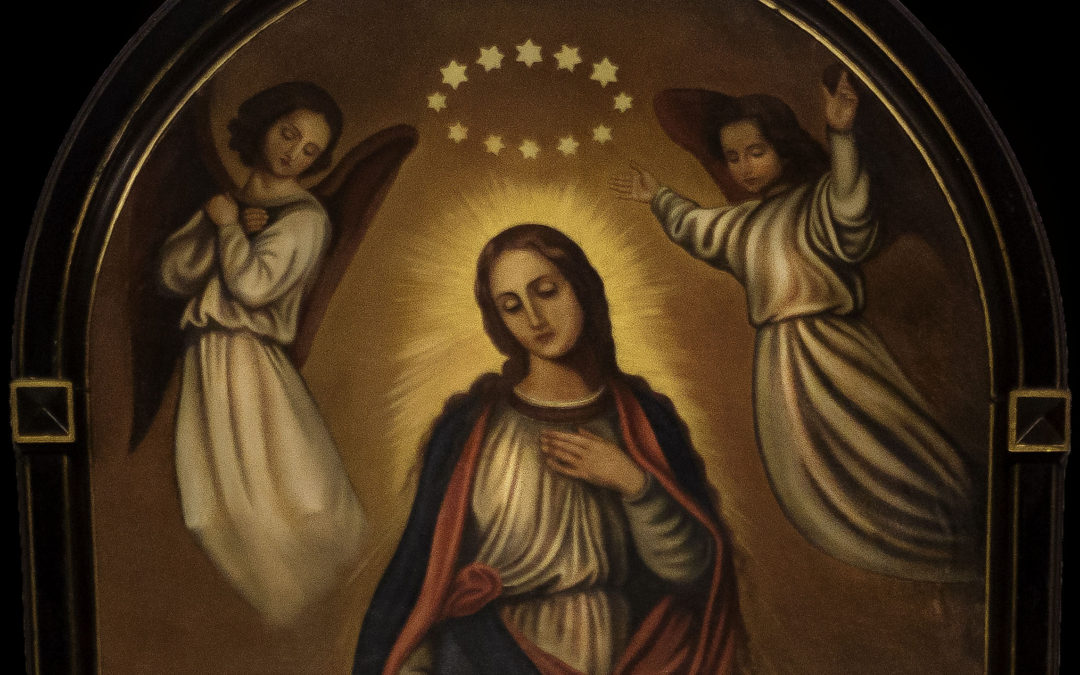Dear Friends,
This week we continue with some excerpts from Brad East’s article in Commonweal about Mary.
In much recent academic theology, there is a strange silence about Jesus’ life in the womb. We are told that what it means to be human finds its norm and pattern in Jesus. Yet his person and work are presented as if they began either at his birth or at his baptism. But the Annunciation was not cooked up by some overeager pro-lifers; it’s right there in the gospels. St. Luke dedicates two leisurely opening chapters to it. The Apostles’ Creed makes the crucial distinction: conceived by the Holy Spirit / and born of the Virgin Mary. In this distinction lies all we need to know about unborn human life and its relationship to Christ.
Consider the implications if all the following is true. Jesus is God incarnate. The Incarnation begins not with Jesus’ birth, but at his conception. Jesus is like us in every respect except for sin. He is fully God (consubstantial with the Father according to his divinity) and fully man (consubstantial with us according to his humanity). He became human precisely to share all that we are, that we might share all that he is. Jesus, in a word, is the God-man from conception to birth and beyond. The Incarnation therefore comprehends not only natality, but fetality; not only born life, but unborn life; not only the public and the visible, but the private and the hidden. Jesus is God in the flesh. Thus, Jesus is God in the womb. And if he is God in the womb, he is man in the womb, too. What is true of Jesus is, mutatis mutandis, true of all humanity. The unborn are sisters and brothers of Jesus. They, like us, are persons for whom Jesus died. They make claims on us—or rather, through them God makes claims on us. Our response is to be modeled on Mary’s. We welcome and protect these gifts from the Lord. For they, like him, are unseen. And like him, they are destined for glory.
“Universal joy has arrived today! God is on earth, God is from heaven, God is among human beings, God is carried in the womb of a virgin, he who is contained nowhere.” So St. Andrew of Crete cries out in praise, and continues: “You are truly blessed, who alone of all mothers was made ready to be Mother of your Creator.” Do we subtract from Christ in praising Mary so? By no means, according to St. Bernard: “Whatever we say in praise of the mother touches the Son, and when we honor the Son we detract nothing from the mother’s glory.”
Christ’s solidarity is total: in every nook and cranny of human life, he is there. He is there because he was there, beginning with the womb. For nine months, Mary was the ark of Israel. Wherever she went, she carried the Lord’s presence with her. This is why St. John leapt at her approach: like David before the ark, he couldn’t help himself. We shouldn’t help ourselves either. Each unborn life is a little Christ waiting to be born—waiting to be received and held and clothed and loved. We rejoice with Andrew and bow with Bernard and leap with John and fall to our knees with Cyril. For Christians know what pregnancy means: not the prelude to a life but the first chapter of it.
So beautifully written. I hope it touches your heart and helps you to make a place for Mary in your following of Jesus.
Peace,
Fr. Damian



